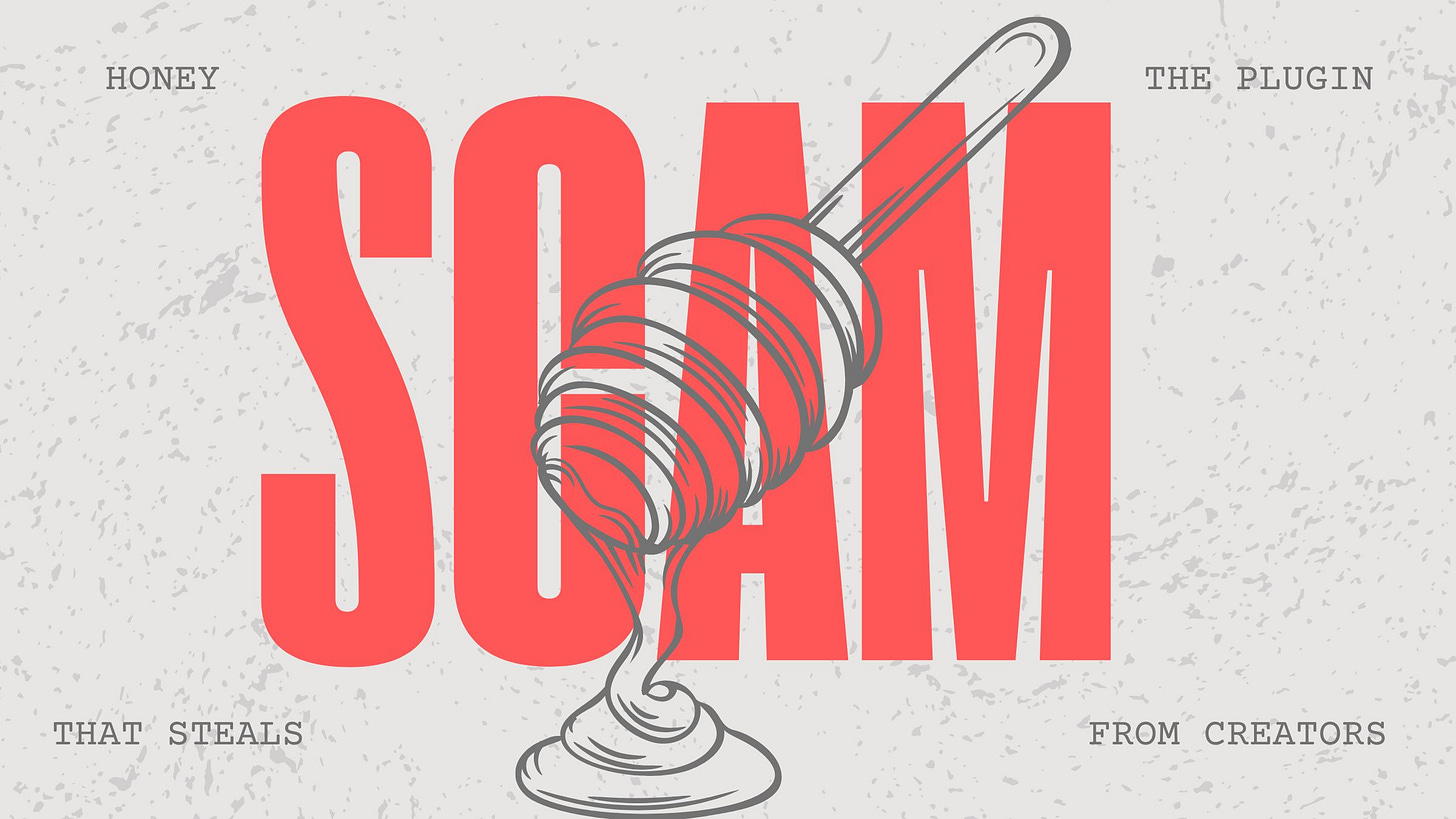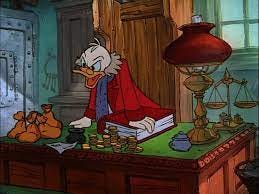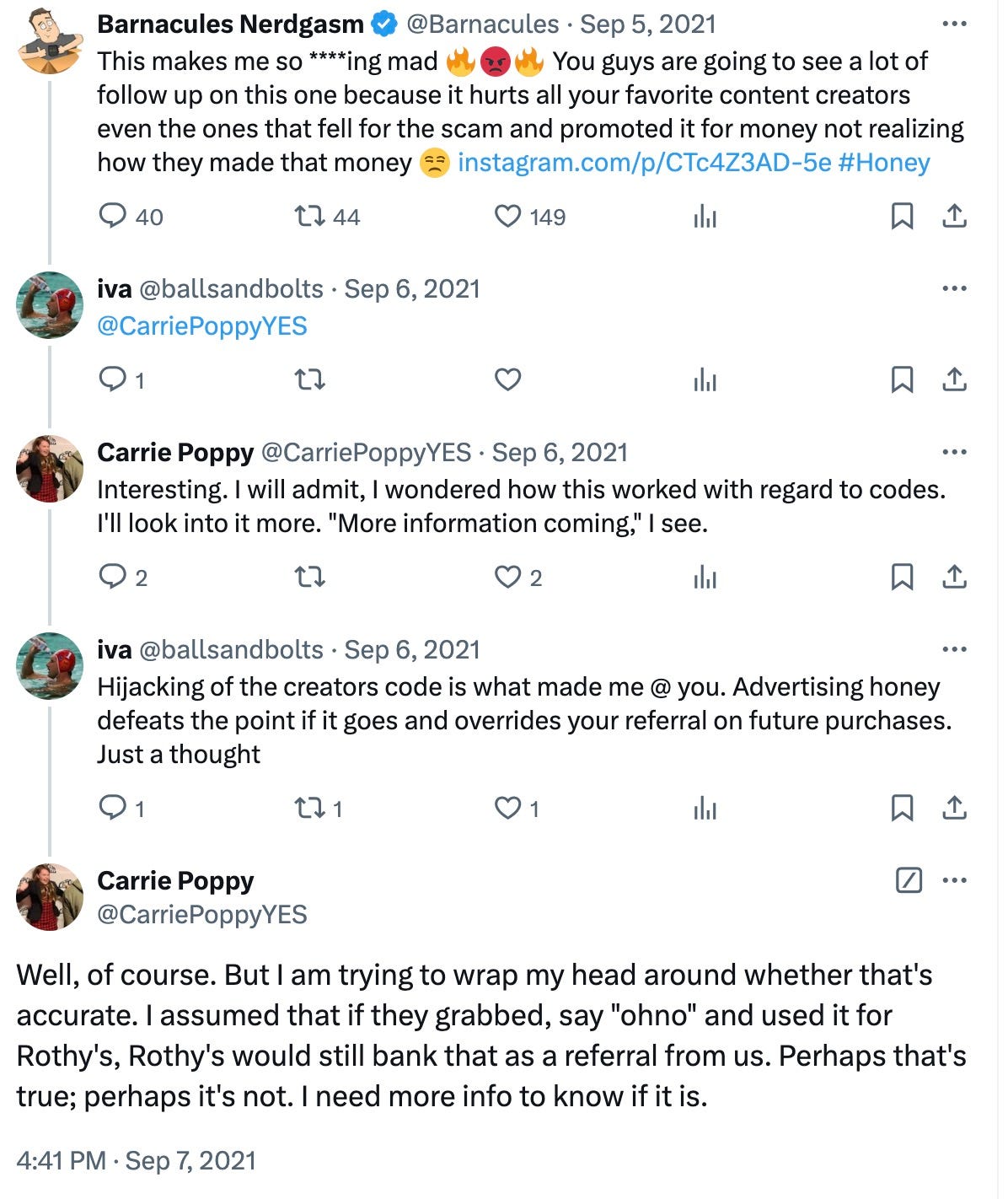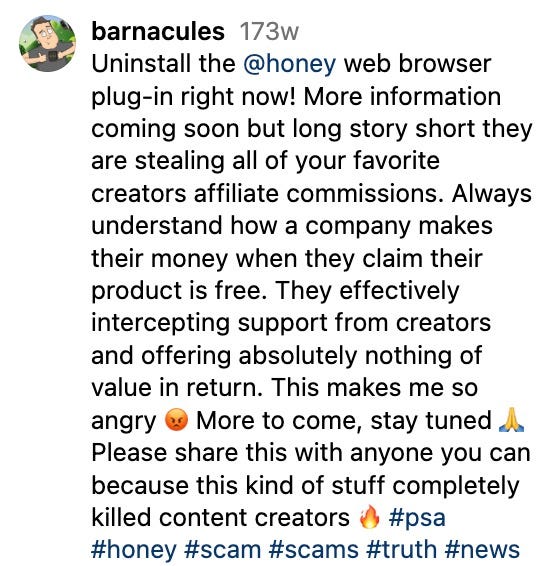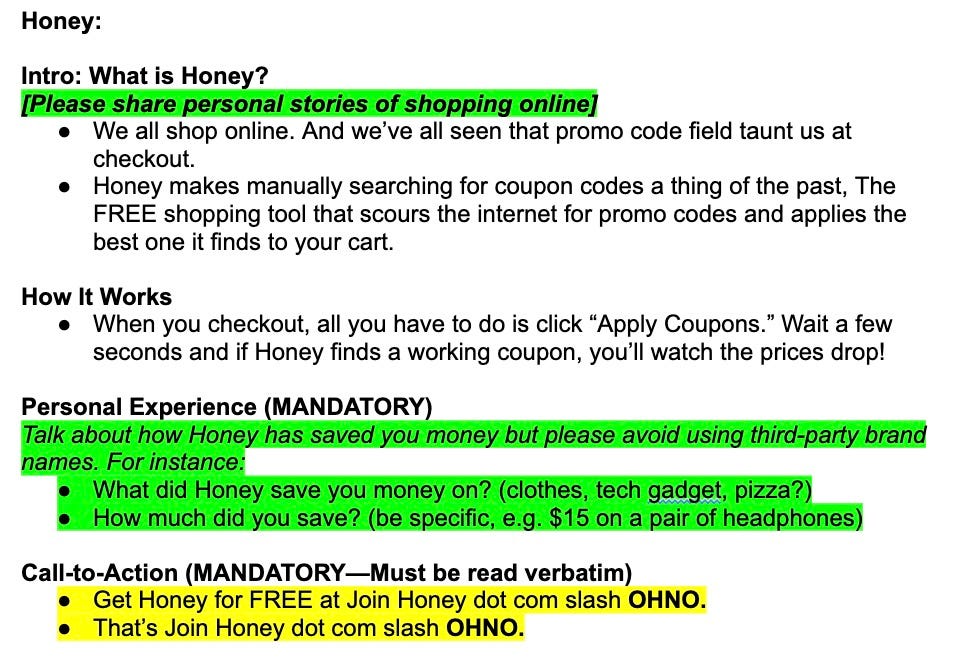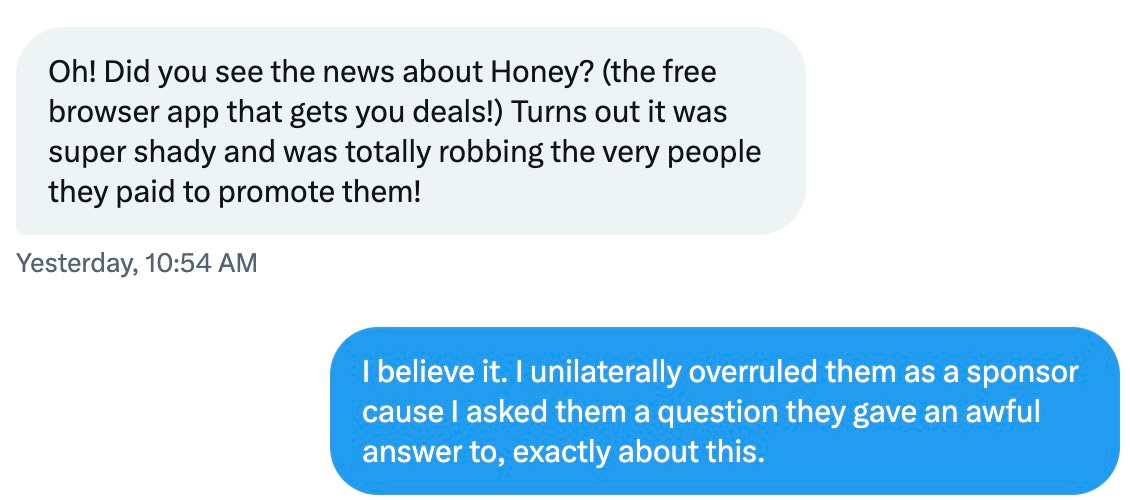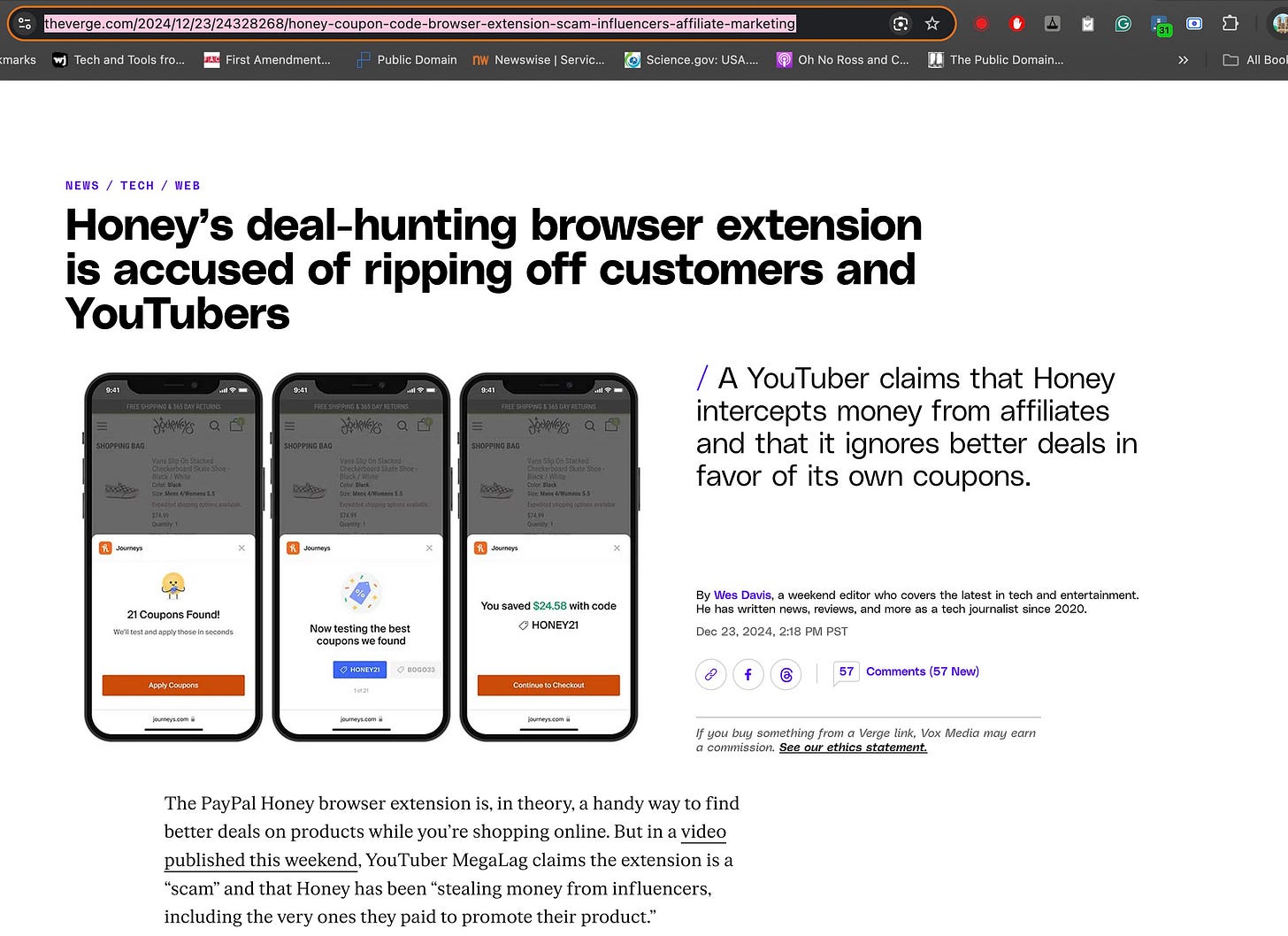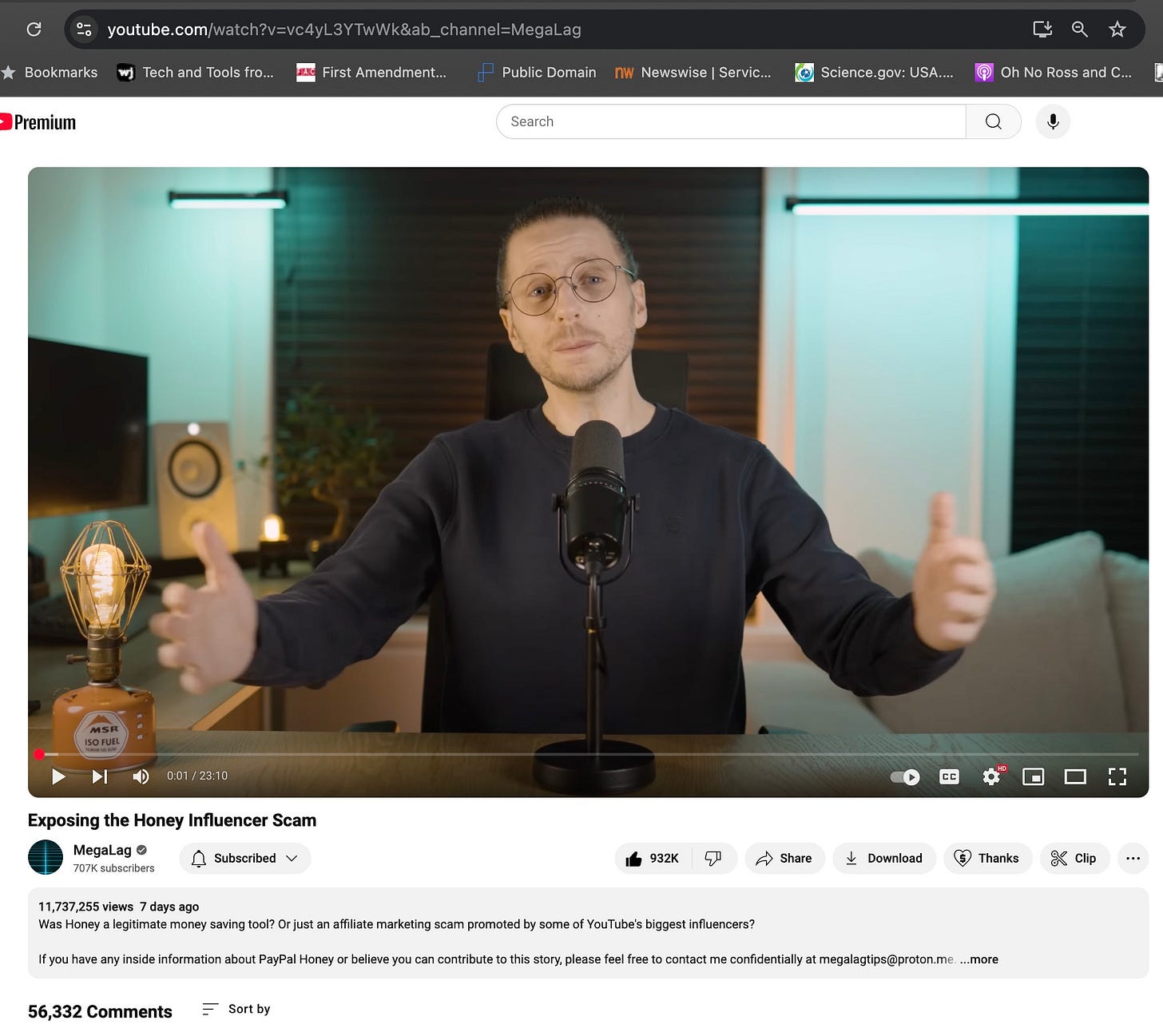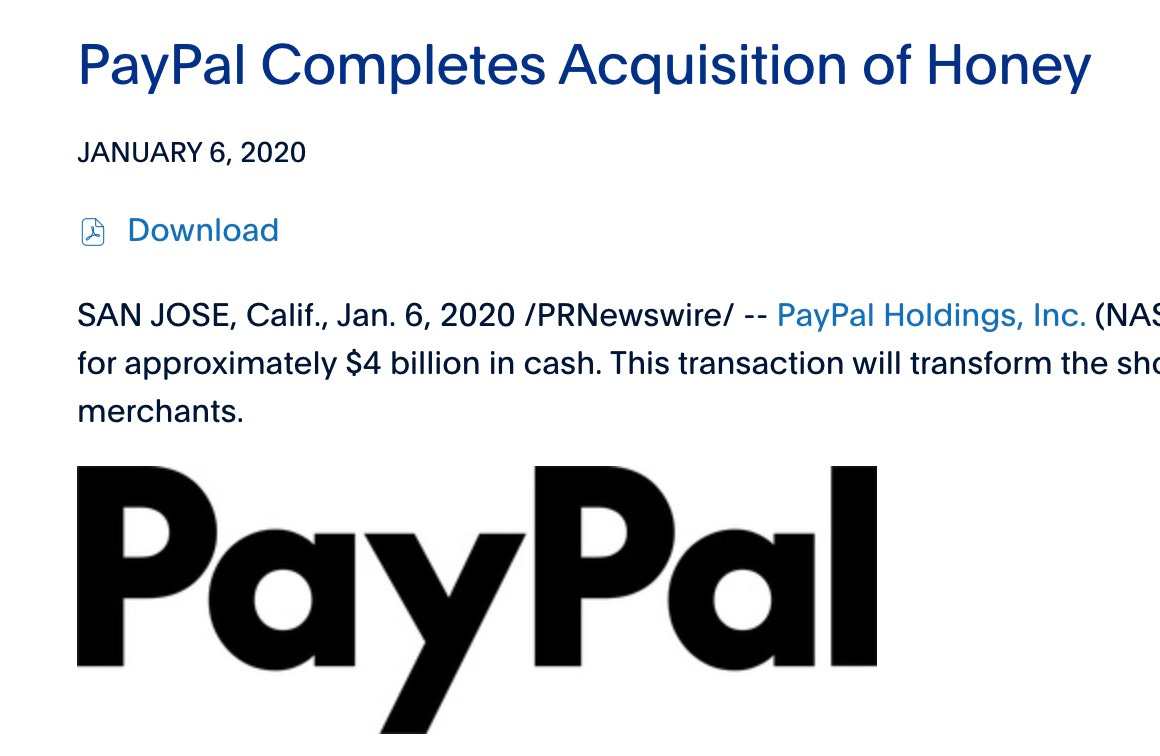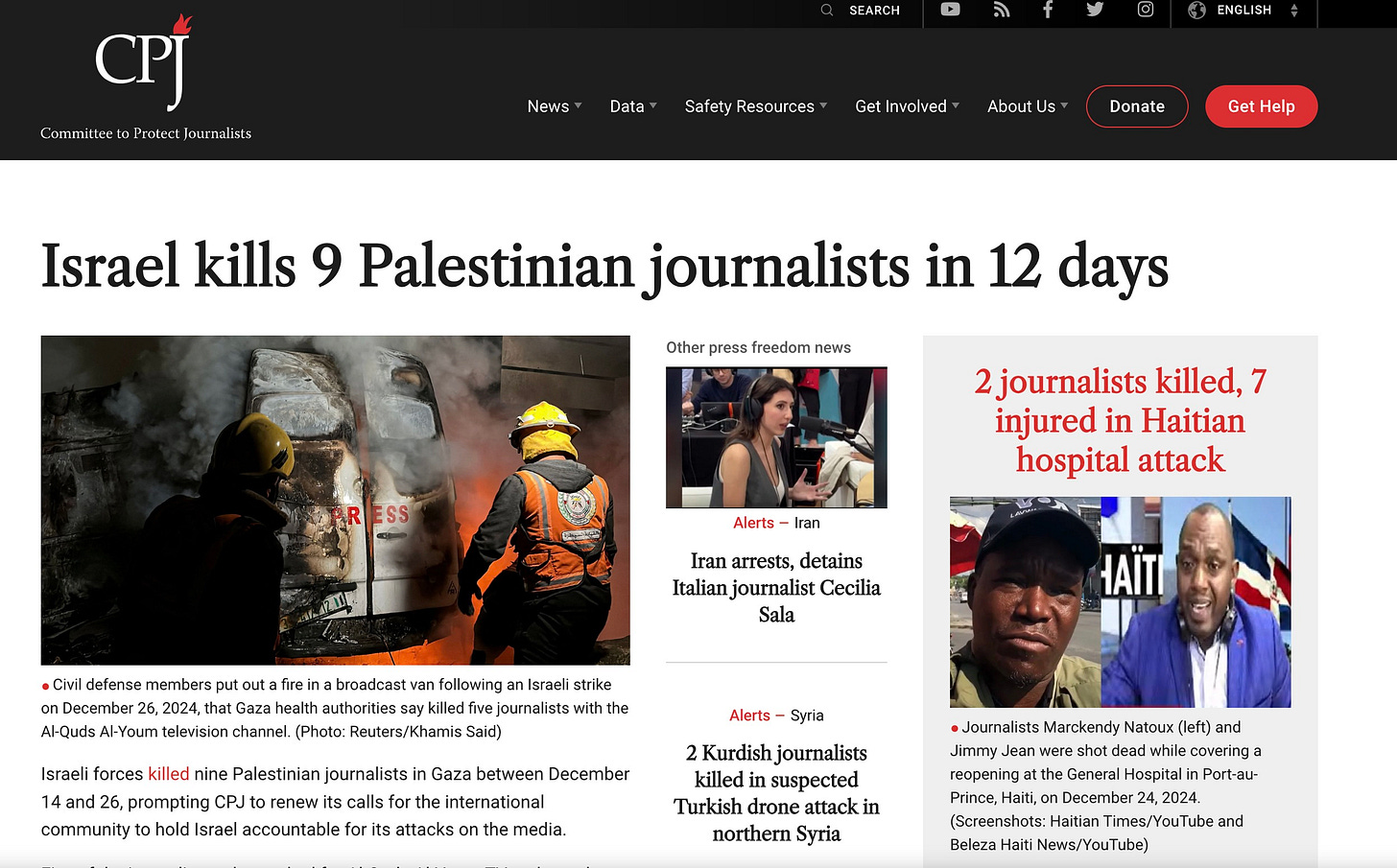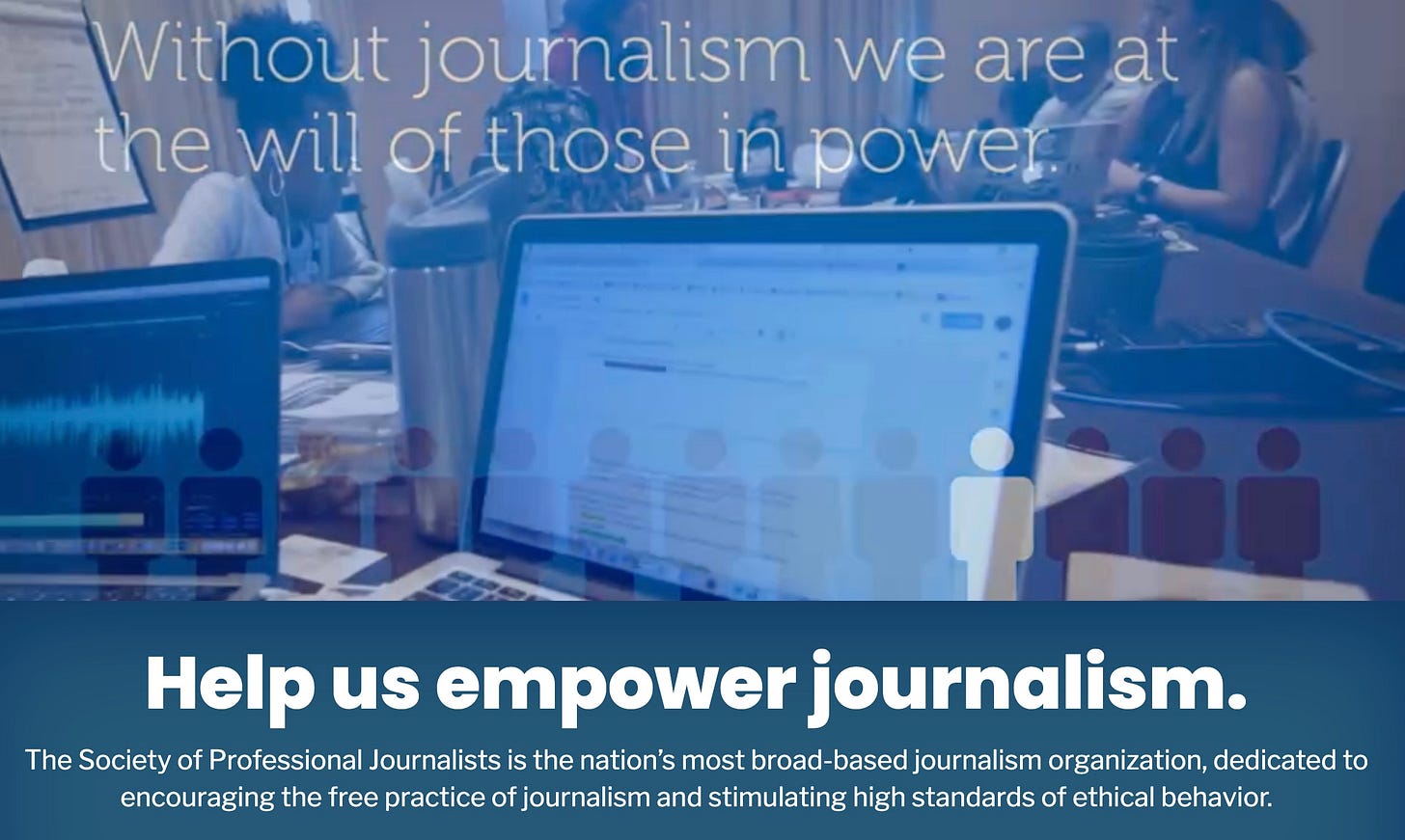
I advertised an awful company four times. It’s called Honey.
After reading this, if Honey is on your browser, I hope you go delete it.
I hope this essay also gives you a peek into how podcast advertising works, and how little checks and balances it has, even at places with great ethics and smart smart smart people. We, like all industries, are prone to groupthink and predators.
All right, then, here’s what happened:
For 13 years, I cohosted an investigative journalism podcast called Oh No, Ross and Carrie. We investigated all kinds of things, especially scams (!) associated with fringe science, spirituality, and claims of the paranormal.
The network that hosted our show, Maximum Fun, always allows hosts to choose their own ads, and to overrule ad offers without question, with no maximum veto number. This principled, pro-artist position is, to my knowledge, not just unique, but singular. (Counter-examples welcome.) In fact, Maximum Fun stood by us as we did some pretty bizarre shit.
In one case, I faced off with a fake COVID healer. Another time, a belligerent millionaire with a drug cult sued us. Then there’s the time we joined Scientology, or the time we walked across hot coals til my cohost earned eczema. This isn’t the kind of work you can do forever; it’s pretty intense, and I got into some really bad situations. But I also got REALLY good at spotting scams and scammers.
AND STILL!
At first, I didn’t spot Honey.
It was billed as an app that serves you discount codes for various sites, when you don’t have one.
On its face, this sounds like a way to send extra revenue to - say - the podcaster whose code gets used one extra time. No obvious problem there, even for me, an autistic person with Uncle Scrooge level patience for dishonesty.
AND YET, here’s me responding to Honey’s ad request, while rushed on an airplane, as if the whole matter needs little thought:
Eeeeee!
Carrie, what are you doing? You have used a product before, so you’ll sell the product now? Yuck yuck, whoops.
I actually remember sending this on that plane, and thinking, “I should have vetted that better than that,” but betting on my own consumer protection habits. A foolish error. I am usually religious about this sort of thing, but my prior exposure to Honey (it was an ad on so many podcasts!) had lowered my defenses.
Well.
Once we had plugged Honey a few times, I began to pay more attention to the user experience.
Now I felt responsible. I was. I started wondering how Honey’s financial structure even worked; why was this thing free?
Then, in September 2021, a listener grabbed my attention:
When I reviewed this, the text must have said “more information coming,” so I don’t know if I absorbed that the rapid-talking fellow below had advised followers to uninstall Honey, and detailing a scam in the Terms of Service:
Clearly I wanted to follow up on the fast-talker’s claims, myself.
If this was accurate, then the code itself - our code, honey.com/ohno - was the product.
Looking back, our code was indeed the one thing Honey required in our ad (see yellow):
I ran my own experiment:
(The weird highlights are a search artifact; sorry.)
Maybe I’m being paranoid, I thought. Everyone advertises this thing, and no one else seems bothered about what happens when they check out.
I decided to simply ask Honey for some guarantees:
Maximum Fun took my questions to the ad agency representing Honey.
Then, suddenly, Honey changed ad agencies. (Huh…)
I didn’t hear back for several months, and finally asked again:
The wonderful Kira Gowan finally got me this answer from the new agency:
“Not able to guarantee this”?!
Not able to guarantee you won’t cannibalize the creator codes meant for creators like me? I was aghast.
Kira, merely acting as the messenger, deferred to us.
My cohost Ross replied, “I’m okay with these [Honey’s] responses. Carrie?”
I let weeks pass before I answered.
I really sweated it.
I didn’t know how to say how bad this situation was, if it wasn’t obvious already.
Was I nuts here?
But, eventually, I unilaterally vetoed:
I hemmed and hawed about this last part. I have friends who grew up dirt poor, whose last concern is whether Walmart is a shitty place to work, or whatever the concern du jour of the upper class.
I can’t begrudge poor people using plug-ins to get discounts, period. But I couldn’t be the one selling them. It was exploitative.
Immediately, Kira at MaxFun accepted this, without any pressure. She followed up with the kind of exactness I appreciate:
That’s it; we never advertised Honey again.
That’s really important: the right thing happened, even if I couldn’t totally convince everyone of the problem. I felt relieved, but unnerved. The whole damn internet was selling this thing. Honey had to be one of the most-advertised products on the podcasting market.
Was I just paranoid?
Cue this week, when Eugene from South Africa DMed me on X, President-Elect Trump’s Dumb Asshole Baby Friend’s Everything App:
I go and look and find this:
This investigator MegaLag is completing years’ worth of investigative journalism on the SCAM that is Honey, and he sniffed the lead through the code itself.
Check out the beginning of his Honey series here.
In short, he discovers that Honey does exactly what I predicted and feared: cannibalizes the people they claim to help.
MegaLag does great stuff in this reporting, and I have something-approaching-zero doubt that he is about to gut this predatory company.
MegaLag points out that one YouTuber advertised Honey hundreds of times before figuring out the scam and quietly cutting ties, with no announcement to their audience, having raked in untold thousands from Honey. (That YouTuber apparently points out that he is a victim of the scam; I haven’t watched the video described here.)
I recognized, with reluctance, that on a small scale, this was me, too (my rake is small though: prob around $1,600). I had spotted the scam much earlier (we only ran four ads), but some of our listeners probably still have that damn plugin. I had never told this story on the show because I thought it might appear conspiratorial, or embarrass other people. That was silly; they needed to know that this industry checkpoint was failing.
I felt guilty, watching MegaLag’s video, which motivated me to email him. I sent him the screenshots above, and explained:
MegaLag (whose name I learned was Jono) replied:
My dudes?
I hate when people tell me not to feel guilty.
You don’t feel guilty! You take away an important information-gathering emotion! I’ll feel guilty all I want! It’s like the people who think anger is “toxic.” Bro what, you ever listened to Jagged Little Pill? Go experience freedom. All the emotions have evolutionary value; all of them give you something. The idea of a useless emotion is nonsense on its face. Veto, reject, moving on.
Anyway, I settled myself.
I’m sure Jono is cool. And anyway, he and I are tiny cogs in a mega media machine:
Honey itself was sold to Paypal for $4 billion.
Which means, as Eugene put it, “obviously they expected it to make them way more than $4 billion back!”
How do you make $4 billion off someone else’s discount codes? You cannibalize, until someone spots you, and stops you.
I asked Jono how many people figured Honey out. Is it just me and him and this one dude who did hundreds of ads for them? (I also saw someone mention another male YouTuber in the comments.) He didn’t reply to this question, but referred to upcoming releases.
The size of the massive Honey scam is clear, but the range of “influencers” CATCHING ONTO IT is not. I think this is important, because it could speak to the need for racial diversity, gender diversity, and neurodiversity across the independent-reporting internet; and on fact-checking teams; and in principled organizations. We should be thinking about how to increase this diversity so that independent journalists and other content creators can provide the checks and balances that the fifth estate aims to serve.
Anyway, Jono is still releasing videos, and he may cover all of this in his upcoming installations.
Please go and follow him and, if you took ad money from Honey, consider donating a representative fraction of it to Jono (who should get paid for this work) or to an independent journalism nonprofit.
I will be donating what I made from Honey directly to Jono, but a representative fraction for you might be 1% or 5%, depending on your situation.
Other places to give: the Committee to Protect Journalists,
or the Society of Professional Journalists, of which I am a voting member.
Independent journalism ends scams.
Pattern seekers find them.
Thanks, Jono. Thanks, me. Thanks MaximumFun.
Thanks everybody speaking up, and especially those bravely speaking to Jono as he reports this out.
I now encourage you to remove Honey if you can afford to do so. If you can’t yet, this isn’t on you. The fault is Honey’s; the fault is barely-regulated capitalism. The fault does not belong with the poor.
Fuck ‘em, and tell ‘em I said so.































